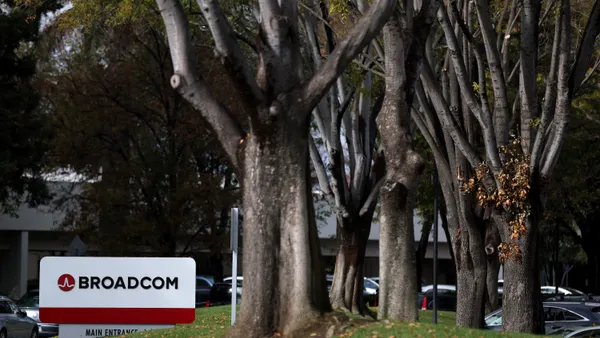Dive Brief:
- Online learning, collaboration and travel companies are the three industry sectors seeing the biggest increases in digital service incidents during the novel coronavirus pandemic, according to a report from PagerDuty.
- With thousands of students switching to virtual classrooms, online learning platforms are seeing up to 11 times their normal volume of incidents. Collaboration services are seeing 8.5 times their usual incident rates, while incidents at travel companies increased 5.3 times.
- All companies who use PagerDuty's incident response system are experiencing, on average, twice as many incidents, a sign that overall demand is up in general. An "incident" is a sign of stress to the system, and doesn't necessarily imply an interruption in service, the report said.
Dive Insight:
Nearly half the country's population is under mandated lockdown as the coronavirus pandemic progresses. The streets may be bare, but internet traffic is soaring.
As companies switch to distributed work, and schools and universities rely on online learning, IT teams are fighting to keep systems running consistently.
Same goes for streaming sites such as Netflix, which suffered an hour-long outage in the U.S. and Europe on Wednesday, just days after AT&T said Netflix saw record volumes on its network. Microsoft this week rolled out a series of "temporary feature adjustments" to Office 365 aimed at keeping up with increased demand.
As long as the consequences of social distancing continue, digital services will keep feeling the stress.
"The multiple that the companies are seeing is pretty extreme," said Rachel Obstler, VP of product at PagerDuty, in an interview with CIO Dive.
To come up with the report, the company purposefully looked at verticals that it knew was getting higher traffic volumes. "What was surprising to us is the degree to which that additional traffic was showing up in the data," Obstler said.
To get ahead of the curve, IT leaders should focus on increasing the capacity of their systems, as well as making sure they're able to go into "hypercare mode," a stage of increased monitoring ahead of expected traffic surges, Obstler said.














